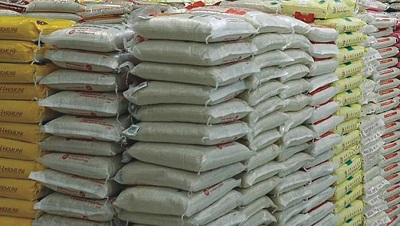
The Rice Millers Association of Ghana (RMAG) has advocated a reversal of the benchmark value reduction policy of the government because it has negatively impacted the rice industry in the country.
It said the implementation of the policy over the last two years had led to the shutdown of most local rice millers and lay off of workers while the existing ones were producing at less than half their capacity.
“RMAG believes the policy is only beneficial to a select few traders particularly big importers of rice and other commodities while the entire rice value chain in Ghana suffers,” it said.
A statement issued by the Convener of the Association, Yaw Poku, in Accra yesterday, therefore, disagreed with calls by the Ghana Union of Traders Association (GUTA) for the policy to be maintained.
“In summary, RMAG is asking for the complete reversal of this benchmark policy for the following reasons: food security, preservation of jobs, industrialisation, creating local champions (farmers, millers and retailers) and job creation,” it said.
Introduced by the government in 2019, the benchmark values are references that the Customs use in determining values of imports for the determination of custom duties at the country’s ports.
It was a strategy to curb the incidents of smuggling and boost revenue generation at the country’s ports slashed the benchmark values for all imports by 50 per cent with the exception of vehicle duties which was later reduced by 30 per cent.
Buttressing its disagreement, RMAG statement said local rice brands such as Rabbit, Champion, and Royal Farmers had been recording low sales as a result of the high cost of local production while the imported substitutes enjoyed a 50 per cent reduction in import duties making imported rice prices very low and rendering local alternatives very uncompetitive on the market.
It indicated that the consuming public had not benefited from the reduction because prices of products had not gone down as expected over the past two years since the inception of the benchmark policy.
“The rice value chain in Ghana provides income to an estimated 500,000 persons engaged in the value chain in Ghana, and all these people are going through very tough times because of the policy,” it said.
BY TIMES REPORTER







